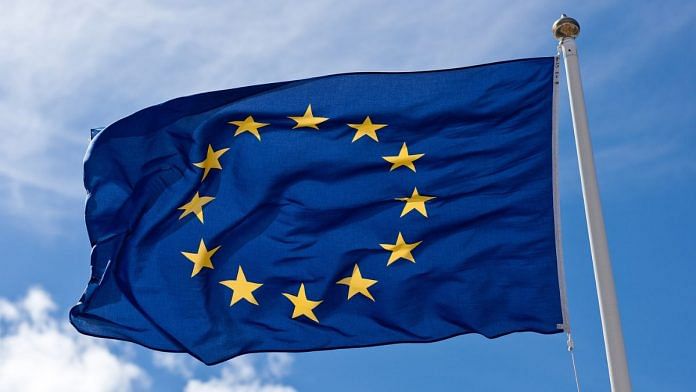New Delhi: A European Union document released Thursday has said that funds and economic resources to Russian banks can be released after “having determined that such funds or economic resources are necessary for the purchase, import or transport of agricultural and food products, including wheat and fertilisers”.
The loosening of sanctions essentially means that banks can now process payments to Russian state-owned entities engaged in the trade of food and fertilisers.
According to estimates, nearly 25 million tonnes of wheat, barley and corn are currently stuck in Ukraine’s blockaded ports. After the harvest season, there could be 60 million tonnes of grain stuck in Ukraine. As a result, global food prices have been soaring while grain shortages are leading to a food crisis globally.
Given the immediacy of the situation, for months, attempts to broker a deal to resolve the port blockades have been underway. The EU’s exemptions released Thursday on assets owned by Russian state-owned entities to ease the global trade of food and fertilisers marks a significant policy shift.
The latest round of sanctions from the EU, termed as a “maintenance and alignment” package, say that “With a view to avoid any potential negative consequences for food and energy security around the world, the EU decided to extend the exemption from the prohibition to engage in transactions with certain state-owned entities as regards transactions for agricultural products and the transport of oil to third countries”.
Russia and Ukraine provide around 30 per cent of the wheat exported in the world. Ukraine’s share of global corn and barley exports is almost 15 per cent. Russia and Ukraine are also responsible for nearly 65 per cent of global sunflower oil exports.
Also read: India ‘unlikely’ to revoke wheat export ban despite pressure. Now US to debate issue at UNSC
What does the sanction exemption include?
The EU’s latest sanctions document adds that “none of the measures in this Regulation or any of those adopted earlier in view of Russia’s actions destabilising the situation in Ukraine target in any way the trade in agricultural and food products, including wheat and fertilisers, between third countries and Russia”.
According to reports, with the new exemption, “EU nations will be able to unfreeze previously blocked economic resources owned by top Russian lenders VTB, Sovcombank, Novikombank, Otkritie FC Bank, VEB, Promsvyazbank and Bank Rossiya”.
Essentially, the exempted assets of these banks will specifically relate to agriculture and fertiliser trading.
Significantly, while the EU is exempting sanctions on Russian banks to make global trade of food and fertilisers easier, it is simultaneously increasing other sanctions on Moscow.
Sberbank, a state-owned bank in Russia which is also the largest lender in the country, is part of the seventh round of sanctions imposed on the country by the EU. The sanctions will freeze Sberbank’s assets in the EU region. Further, any trade of gold and other jewellery is also prohibited in this latest round of sanctions.
According to latest reports, a deal between Russia and Ukraine to resolve the Black Sea port blockades could be signed later Friday.
(Edited by Zinnia Ray Chaudhuri)
Also read: Zelenskyy blames Russia for food crisis, says Ukraine looking for ‘safe corridor’ to export grains



